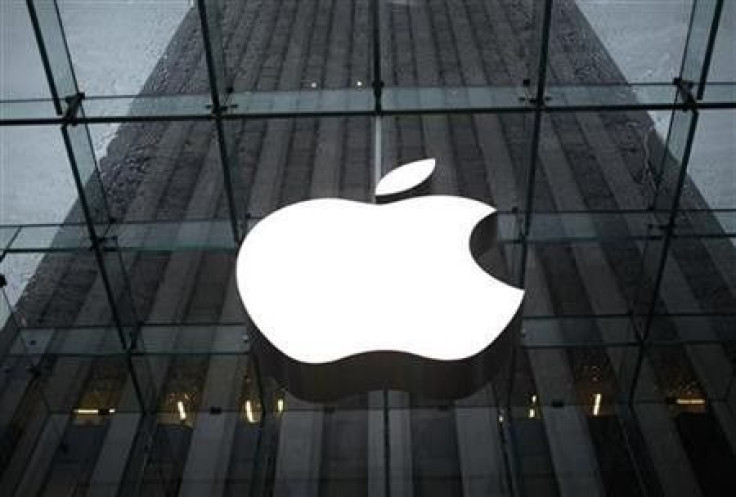Apple's Cash Hoard: Keeping the Powder Dry, says CEO Jobs

Apple CEO Steve Jobs doesn't like paying shareholder dividends. He just likes holding onto cash -- and lots of it -- so Apple can be nimble, ready to place very big bets if needed.
But some wonder if Jobs' obsession with hoarding cash has gone too far.
When Apple revealed this week it had smashed Wall Street's expectations in the company's fiscal third quarter with its best-ever quarterly earnings report fueled by robust sales of its popular iPhone smartphone, iPad tablet and Mac laptop computers, the company also revealed it now has $76 billion in cash on hand.
That's billion, with a B.
Since the recession, U.S. companies have made cash hoarding a standard mode of operation, piling up dollars in record amounts. In 2010, for instance, non-financial companies in the U.S. held $1.93 trillion in cash, or 7.4 percent of total company assets -- the highest ratio since 1959.
But Apple is moving into uncharted territory with its $76 billion cash hoard. Its not only unusual, it's practically unprecedented. Consider that Apple held less than $10 billion in cash just six years ago. By 2010, Apple's cash hoard had grown to $46 billion.
Apple does not pay a dividend to shareholders or use money to buy back stock to further benefit shareholders because Jobs says he wants the money at the company's disposal to "take big, bold risks."
But how much is enough?
With $76 billion, Apple could buy most any company it wanted. Apple could buy several or more companies it wanted, it fact, with plenty of money left over for a rainy day. And, with money left over to give back to shareholders through a dividend, or a stock buyback. Apple's cash hoard is currently even greater than the GDP of more than 100 countries, including Ecuador, Sri Lanka and Costa Rica.
Interestingly, however, Apple has no track record of buying out big companies, fueling growth through acquisition. Jobs doesn't like to shake up Apple's culture, preferring a grow-from-within model rather than large-scale clumsy integration. That's why historically, Apple has bought smaller companies for technology and talent.
In 2010, Apple COO Tim Cook said Apple doesn't rule out large acquisitions. He said, though, that Apple has not found large companies in considering acquisitions that pass the company's "strategic" and "financial" tests.
"We don't let money burn a hole in our pocket," Cook said. "Unless we find something that really makes sense for shareholders, we're not going to do it."
Analysts began complaining loudly about Apple's growing cash hoard in 2010 during a period when the company's stock languished, moving sideways during hot summer months while Apple's iPhone and new iPad sold as fast as the company could make them. The stock didn't move, and Apple held onto the profits, paying no dividend to shareholders and refusing to buy back shares.
At that point, Apple had $46 billion in cash. Sanford C. Bernstein analyst Toni Sacconaghi said Apple's position of keeping "mythic proportions" of cash on hand -- equivalent to one-fifth of Apple's entire market value -- that earned a mere 0.76 percent in interest was a "value destroying" strategy that was "eroding shareholder value."
"In our conversations with shareholders," Sacconaghi wrote in an open letter to Apple's board of directors in August, 2010, "one common source of frustration -- which is now bordering on exasperation -- has been Apple's burgeoning cash balance and the company's unwillingness to return it to shareholders or discuss its vision for how the company plans to use it."
Apple's cash balance was in 2010 the highest among all U.S. companies. Now, in just one year, Apple's cash balance has almost doubled, to $76 billion. By comparison, Google, also known for hoarding cash, has $39 billion on hand. In the last quarter alone, Apple piled up an extra $10 billion in cash with its stellar iPhone and iPad sales.
Considering analysts are raising Apple's sales targets almost daily because of the company's smartphone and tablet dominance, the cash hoard figure could continue soaring, passing $100 billion before year's end.
The only explanation Apple offers for keeping so much cash on hand is that the company wants to be nimble in regard to future opportunities.
"We'd like to continue to keep our powder dry," said Jobs, speaking in a conference call in October, "because we do feel that there are one or more strategic opportunities in the future. That's the biggest reason."
© Copyright IBTimes 2024. All rights reserved.











